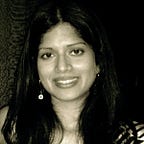Eid under coronavirus curfew in Iraq
How one family supported by the World Food Programme in the Kurdistan Region are marking the end of Ramadan
Perhaps defying stereotypes of refugees, cancer survivor Hadiya is the breadwinner in her family — a working mother of two, multilingual literature graduate, all at the young age of 31. She lives with her husband and two young children in a refugee camp half an hour from Erbil, capital of the Kurdistan Region of Iraq. The majority of Syrian refugees in Iraq arrived over six years ago, and have been unable to return home because of ongoing security issues.
Hadiya’s refugee camp hosts 8,400 people. Until recently, WFP was assisting 41,000 Syrian refugees in camps throughout the Kurdistan Region. Due to COVID-19 restrictions, many families have lost their sources of income. WFP has collaborated with its partners to scale up its food assistance to reach a further 35,000 refugees and 10,000 displaced people.
“Our hometown was Qamishli in northeast Syria, but we fled the war and found safety here,” says Hadiya. “It hasn’t been easy, with new security problems, my health … and now the coronavirus fears. It has been one thing after another. But we have been lucky overall — and I remember this every single day.”
After graduating from Damascus University, Hadiya returned to her family in Qamishli, met her husband-to-be, Shadi, but before they could start their lives together, violence flared. They departed with her sister for Iraq. After barely settling in, she was diagnosed with leukaemia.
“I was always healthy and strong, so it came as a big shock. To all of us,” she says. “And I was so young, just in my twenties. My husband and sister were so supportive, my whole family. It was a terrible experience, with the treatments and sickness. But I gradually recovered, and I went on to have two healthy children.”
Hadiya’s face lights up. It is nothing short of a miracle to be fully recovered. “It has been so hard,” she says. “For the birth of my first child Soma, I went back to Qamishli to be near my mum. The delivery was fine, thankfully, but I got a severe virus, which couldn’t be cured locally.
“I returned to Erbil, so sick, and was in hospital for four months’ treatment, separated from my baby girl. My sister then managed to bring Soma from Qamishli to Erbil. Even then, I had to stay in hospital and saw her for a few days, followed by weeks apart… imagine the relief and sweetness when we were finally reunited.”
Years later, Hadiya still goes for check-ups, but COVID-19 has put these on hold for now. “We move around as little as possible. It is better to wait until things are better,” she says. “The staff helping in the camp are also trying to keep us safe. They wear masks and gloves, keep a distance and avoid crowds gathering.”
The World Food Programme provides monthly cash assistance to Hadiya’s family through mobile money transfers, which enables them to redeem entitlements via their phones, in the camp. “The assistance and using technology means I can buy the food my family needs and what we like, such as the traditional dishes I’m preparing for iftar and sohour,” she says, referring to the evening and morning meals during Ramadan. “I buy ingredients in the camp food shops, or my husband buys in the shop where he works.”
Shadi started his part-time job in February, just before the outbreak. “It is so hard to find work in the ongoing crisis in our region,” Hadiya explains. “We are thankful. Even though I am a graduate, there are few opportunities. NaTakallam came highly recommended.”
The award-winning learning platform presents refugees with the opportunity to teach language classes online. The beauty of technology is that you can be based anywhere, the only barrier is the time zone. “I teach Arabic part-time for NaTakallam, and have been relieved to continue some work during the pandemic.
My husband too — his work has continued, as he is frontline staff and people need to buy food. But I know many people who lost their jobs, or who had plans to work that fell through. It’s so hard to feed your family without a full income, and especially when you want to give your children a happy Eid.”
Under curfew, Eid is different this year. “We started our preparations earlier: making cards with the children, and getting some essentials for our Eid dishes. I miss my mum and dad in Syria so much. Now I also miss seeing my relatives here in Iraq, usually we’d have a bigger family gathering. On Eid we will greet each other by phone, and my kids will say hi to all the relatives in a short video call. Thank goodness for technology, which means we could stay safe. That I could teach. And that I could redeem our family’s [food] assistance.”
Hadiya remains positive. She says: “I’m looking forward to new beginnings the other side of Eid. With good health, and better times for everyone. I never give up.”
With thanks to the German Federal Foreign Office (GFFO), USAID FFP, Japan, Canada, Belgium, Italy, the Republic of Korea, Switzerland and the Republic of Ireland for their continued support to the people reached by the World Food Programme in Iraq, including during the Covid-19 crisis.
